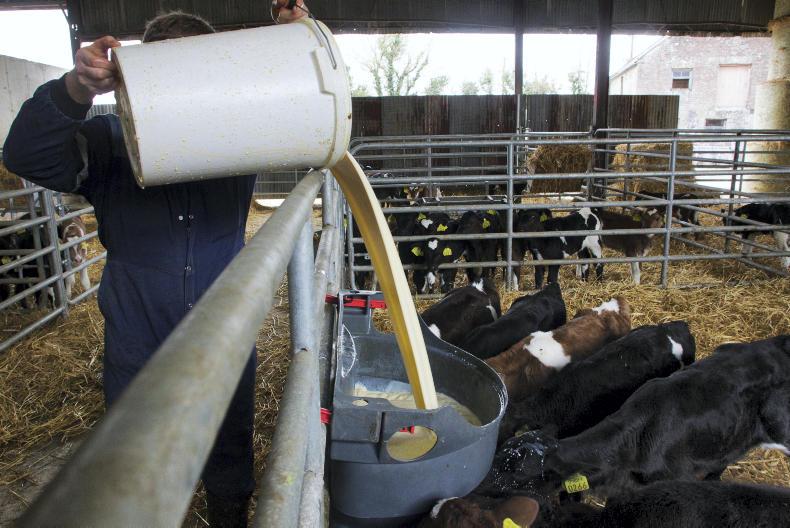We have received many letters from women who have given up their own careers to look after children and want to know have they any claim to the house or farm where their name is not on the deeds. How are they protected?
Rights under a will/intestacy
If the farm is in the husband’s name and he bypasses his wife leaving the farm to a child under a will, a wife is entitled to take her legal right share (an automatic right to a share of the estate), which is one-third of everything he owns at the date of death. If there are no children, the wife is entitled to half of everything the husband owns at the date of death. She has to be notified of her right to take her legal right share and can elect to take it or not. It is her choice.
There is also a provision under the Succession Act to prevent transfers for the purpose of disinheriting a spouse
If a husband dies without making a will, his wife is entitled to everything he owns if there are no children. If there are children, she is entitled to two-thirds of everything he owns, with the children entitled to the other one-third.
There is also a provision under the Succession Act to prevent transfers for the purpose of disinheriting a spouse.
Where the court is satisfied that a transfer within three years of the death of the person who made the transfer occurred for the purpose of defeating or substantially diminishing the share of the deceased persons spouse whether as a legal right or on intestacy, the court may order that the transfer be set aside and have no effect. So, there is a mechanism to reverse a transfer done before the husband dies.
Rights in equity
It is generally considered that the person who pays for property has the legal and beneficial interest in that property. But what about unpaid work by a farmer’s spouse? Does that entitle her to claim ownership in a house or farm?
The current position is that unpaid work in the legal owner’s business is sufficient to trigger a claim while work in the home is not. The Irish courts have refused to accept that a partner’s contribution by working in the home, whether in performing housework or looking after children, gives rise to a beneficial interest. Work on the farm is work in the husband’s business and thus, should give rise to a claim to an interest in the land.
It should be noted that any contribution made after all the purchase price has been paid (and at a time when no mortgage is outstanding) is incapable of generating a beneficial interest by means of a resulting trust
“Indirect” contributions to the repayment of a mortgage, through the payment of household expenses, are seen as freeing up the legal owner’s resources to pay off the mortgage. They will generate a share in the property in the absence of any contrary intention.
It should be noted that any contribution made after all the purchase price has been paid (and at a time when no mortgage is outstanding) is incapable of generating a beneficial interest by means of a resulting trust.
Paying for the building of an extension or painting it yourself, even though it can increase the value of the house does not create an interest. In the court case of W v W – where a wife expends monies or carries out work in the improvement of a property – the legal ownership of which is vested solely in the husband, she will have no claim by reason of such contributions. This is the case unless she can establish that it was specifically agreed or that she was led to believe by virtue of the surrounding circumstances that she would be recompensed for it.
right to block a transfer
It would be difficult for a wife to block a farm transfer unless she took a court case claiming equitable rights in the property or taking family law proceedings, ie separation or divorce. However, the family home is treated differently and is afforded special protection under the Family Home Protection Act, which prevents the family home from being transferred without her knowledge. A wife’s prior written consent would be required to transfer the family home.
Separation/divorce/redress
scheme for cohabitation
Under the terms of a separation or divorce, the court can make property adjustment orders, which require the husband to transfer property into the name of the wife.
What orders will be made very much depends on the circumstances of the case such as the length of the marriage, whether the wife worked outside the home, whether the farm was purchased or inherited, whether there are dependent children, etc.
This redress scheme can ensure that a land-owning partner has to make financial contributions and/or transfer property to the partner at the end of the relationship
For unmarried, cohabiting couples there is a redress scheme to provide for financially vulnerable partners at the end of a relationship through death or otherwise.
This redress scheme can ensure that a land-owning partner has to make financial contributions and/or transfer property to the partner at the end of the relationship.
This is available only where the couple has been cohabiting and in an intimate and committed relationship for five years, or two years where there is a child of the relationship.
I have a University of Limerick PhD student Mary Curtin working part-time with me. Her thesis is looking at these issues. Her research is also looking at the barriers to female participation in agriculture, more specifically farm ownership in Ireland. Mary will spend the next four years researching this issue and will make recommendations on reform and policy change. Feel free to drop us a line if you would like to contribute info@agrisolicitors.ie
Disclaimer: the information in this article is intended as a general guide only. While every care is taken to ensure accuracy of information contained in this article, Aisling Meehan of Agricultural Solicitors does not accept responsibility for errors or omissions howsoever arising. Email info@agrisolicitors.ie
Read more
How can a farmer’s wife get divorced?
Legal query: will a Green Cert reduce my inheritance tax?
We have received many letters from women who have given up their own careers to look after children and want to know have they any claim to the house or farm where their name is not on the deeds. How are they protected?
Rights under a will/intestacy
If the farm is in the husband’s name and he bypasses his wife leaving the farm to a child under a will, a wife is entitled to take her legal right share (an automatic right to a share of the estate), which is one-third of everything he owns at the date of death. If there are no children, the wife is entitled to half of everything the husband owns at the date of death. She has to be notified of her right to take her legal right share and can elect to take it or not. It is her choice.
There is also a provision under the Succession Act to prevent transfers for the purpose of disinheriting a spouse
If a husband dies without making a will, his wife is entitled to everything he owns if there are no children. If there are children, she is entitled to two-thirds of everything he owns, with the children entitled to the other one-third.
There is also a provision under the Succession Act to prevent transfers for the purpose of disinheriting a spouse.
Where the court is satisfied that a transfer within three years of the death of the person who made the transfer occurred for the purpose of defeating or substantially diminishing the share of the deceased persons spouse whether as a legal right or on intestacy, the court may order that the transfer be set aside and have no effect. So, there is a mechanism to reverse a transfer done before the husband dies.
Rights in equity
It is generally considered that the person who pays for property has the legal and beneficial interest in that property. But what about unpaid work by a farmer’s spouse? Does that entitle her to claim ownership in a house or farm?
The current position is that unpaid work in the legal owner’s business is sufficient to trigger a claim while work in the home is not. The Irish courts have refused to accept that a partner’s contribution by working in the home, whether in performing housework or looking after children, gives rise to a beneficial interest. Work on the farm is work in the husband’s business and thus, should give rise to a claim to an interest in the land.
It should be noted that any contribution made after all the purchase price has been paid (and at a time when no mortgage is outstanding) is incapable of generating a beneficial interest by means of a resulting trust
“Indirect” contributions to the repayment of a mortgage, through the payment of household expenses, are seen as freeing up the legal owner’s resources to pay off the mortgage. They will generate a share in the property in the absence of any contrary intention.
It should be noted that any contribution made after all the purchase price has been paid (and at a time when no mortgage is outstanding) is incapable of generating a beneficial interest by means of a resulting trust.
Paying for the building of an extension or painting it yourself, even though it can increase the value of the house does not create an interest. In the court case of W v W – where a wife expends monies or carries out work in the improvement of a property – the legal ownership of which is vested solely in the husband, she will have no claim by reason of such contributions. This is the case unless she can establish that it was specifically agreed or that she was led to believe by virtue of the surrounding circumstances that she would be recompensed for it.
right to block a transfer
It would be difficult for a wife to block a farm transfer unless she took a court case claiming equitable rights in the property or taking family law proceedings, ie separation or divorce. However, the family home is treated differently and is afforded special protection under the Family Home Protection Act, which prevents the family home from being transferred without her knowledge. A wife’s prior written consent would be required to transfer the family home.
Separation/divorce/redress
scheme for cohabitation
Under the terms of a separation or divorce, the court can make property adjustment orders, which require the husband to transfer property into the name of the wife.
What orders will be made very much depends on the circumstances of the case such as the length of the marriage, whether the wife worked outside the home, whether the farm was purchased or inherited, whether there are dependent children, etc.
This redress scheme can ensure that a land-owning partner has to make financial contributions and/or transfer property to the partner at the end of the relationship
For unmarried, cohabiting couples there is a redress scheme to provide for financially vulnerable partners at the end of a relationship through death or otherwise.
This redress scheme can ensure that a land-owning partner has to make financial contributions and/or transfer property to the partner at the end of the relationship.
This is available only where the couple has been cohabiting and in an intimate and committed relationship for five years, or two years where there is a child of the relationship.
I have a University of Limerick PhD student Mary Curtin working part-time with me. Her thesis is looking at these issues. Her research is also looking at the barriers to female participation in agriculture, more specifically farm ownership in Ireland. Mary will spend the next four years researching this issue and will make recommendations on reform and policy change. Feel free to drop us a line if you would like to contribute info@agrisolicitors.ie
Disclaimer: the information in this article is intended as a general guide only. While every care is taken to ensure accuracy of information contained in this article, Aisling Meehan of Agricultural Solicitors does not accept responsibility for errors or omissions howsoever arising. Email info@agrisolicitors.ie
Read more
How can a farmer’s wife get divorced?
Legal query: will a Green Cert reduce my inheritance tax?










SHARING OPTIONS